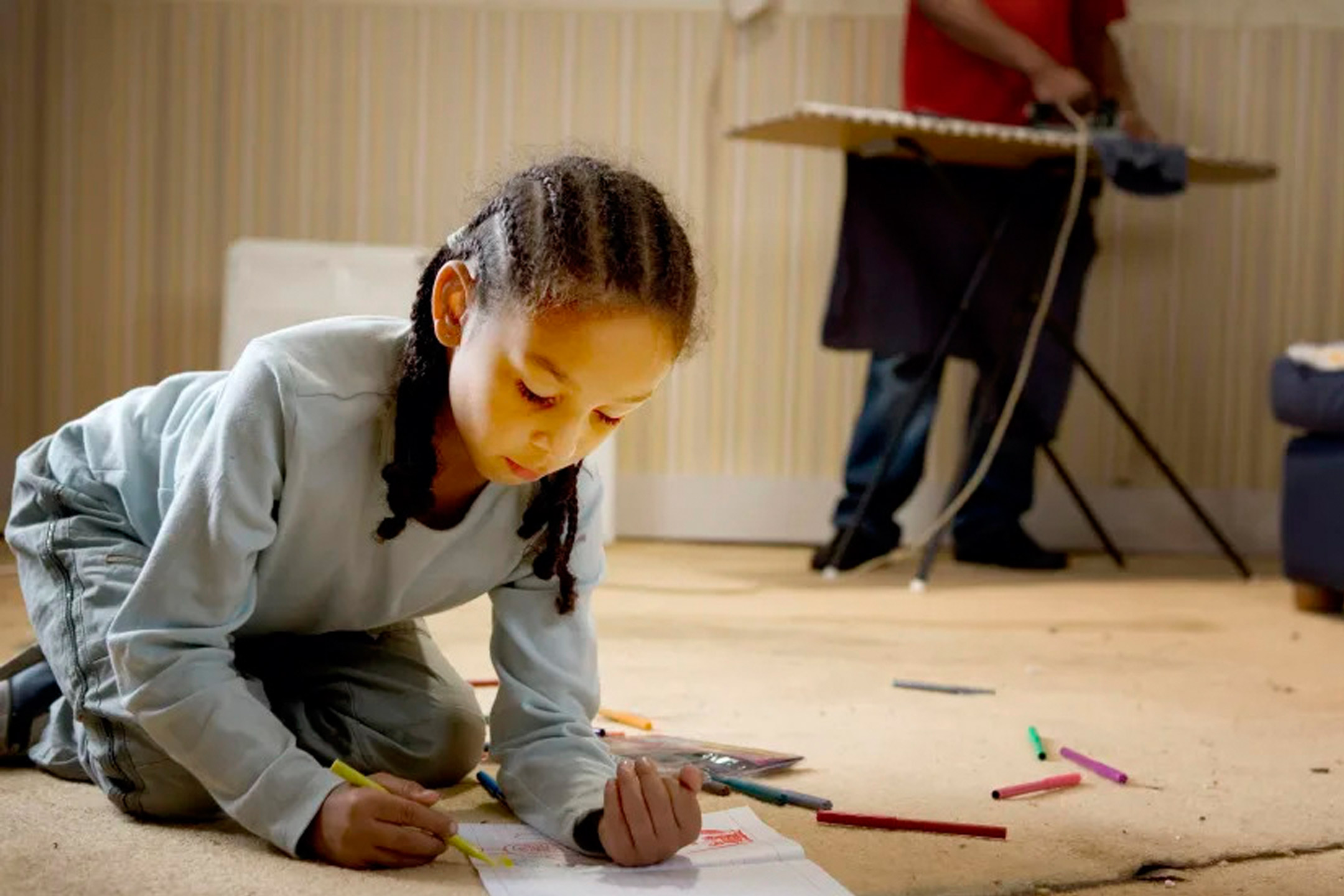
02 Feb Why ensuring families aren’t left behind is critical for the post-pandemic recovery
A child’s formative years are critical to laying the foundations for opportunity across their entire life, reports Professor Abigail Payne
So the experience of prolonged hardship during these early years can have a range of long-lasting negative consequences on children’s health and development. In the wake of the COVID-19 economic shock, many families with young kids are telling us they are facing hard times.
Critical to shaping and supporting children’s futures is their family’s ability to afford essential goods and services. But with lockdowns, changes in working hours and uneven employment conditions, many Australian families are experiencing high levels of financial stress.
In particular, our new research at the Melbourne Institute: Applied Economic & Social Research show that households with young children are feeling the highest level of financial stress.
Our study, in collaboration with the Centre for Community Child Health at the Murdoch Children’s Research Institute, and the Brotherhood of St Laurence, found that over two thirds (68 per cent) of Australian families with children under the age of five have persistently reported barely being able to make ends meet – or worse – over the pandemic period.
This financial stress is highest for families living in communities with moderate levels of poverty.
In comparison, 63 percent for families with older children and 60 percent of families with no children at home reported financial stress during the pandemic.
The research is based on the responses from the Melbourne Institute’s Taking the Pulse of the Nation which surveys about 1200 Australians aged 18 and over every two weeks.
Our research is based on survey results between June 2020 to September 2021 of respondents aged 18 to 54. Those that reported being “very financially stressed”, “moderately financially stressed”, or “just making ends meet” were classified as financially stressed.
Higher levels of reported stress by families with young children is likely to be associated with the challenges presented by the pandemic, including limited access to childcare and schooling, especially in areas that have faced continued lockdowns.
Having to balance working-from-home and caring for children inevitably leads to changes in hours worked and/or employment circumstances.
As we move closer to a post-pandemic recovery, we might expect financial stress to diminish.
But the highest level of financial stress – beyond just making ends meet – has been increasing in recent months for families with young children. The proportion of these families reporting high levels of stress has risen in September to 37 percent, compared with 34 percent a year earlier.
Money matters as it provides the means to pay for goods and services that children need to thrive.
There is a broad consensus that early family environments are the main predictors of children’s cognitive and non-cognitive abilities. For example, in the US, research has found that government financial support leads better health outcomes for children and increased self-sufficiency for women.
While many of us are weathering the storm, the last 12 to 18 months has likely exacerbated the financial problems faced by those living in poverty or on low incomes. It is too early to tell whether this will be short or long lived.
The pandemic should be a catalyst to consider how those living in or dangerously close to poverty can be better supported.
And importantly, as our research shows, how we can best help families with young children to promote strong child development and support parents.
Children of low-income families are also likely to experience poverty as a young adult, raising serious concerns around the intergenerational transmission of poverty in Australia.
Alarmingly recent research shows that it’s a cycle that’s difficult to break – of the Australians living in poverty in 2011, 30 percent continued to experience poverty five years later in 2016.

There is unfortunately no silver bullet that will eliminate poverty.
As Stanford economist Professor Matthew O. Jackson pointed out recently, we should be developing “policy cocktails” to address issues of poverty and related persistent inequality.
Addressing poverty through a cocktail – a mixture of policies – approach allows us to blend policies and programs that can work together to address multiple challenges that families face.
Education, training, employment, and safety net measures are all important. But are we including in the mix the vital role that community and peer support networks play in helping people and families improve their circumstances?
Have we sufficiently considered the importance of providing a financial helping hand during particular periods of need that can result in positive outcomes over both the short and long term?
For all the disruption it has caused, the pandemic has also presented an opportunity to understand what is meant by effective investment in families and children so that we can take action that will have lasting and persistent effects.
This should involve testing and evaluating practices that brings into action policy cocktails that can be tailored to individual families and communities. These should be based on tackling immediate challenges – be they job or housing shortages, carer services, information sharing and/or temporary challenges faced within a family unit.
The COVID-19 pandemic has been a huge wakeup call across health, government and the economy.
But one of the biggest wakeup calls is how hard the pandemic hit those of us who were already struggling. Poverty, especially for families with young children, is a serious issue in Australia, so let’s use this period of pandemic recovery to tackle it.
Anti-Poverty Week runs 16-22 October 2022, and is campaigning for an increase in income support and investment in social housing.
Anti-Poverty Week supports the Australian community to have an increased understanding of poverty and to take action collectively to end it. A diverse network of individuals and organisations share this purpose. Since 2002, they have been active each year in the week around the 17th of October, the United Nations Day for the Eradication of Poverty.
Banner: Getty Images
This article was first published on Pursuit. Read the original article.

